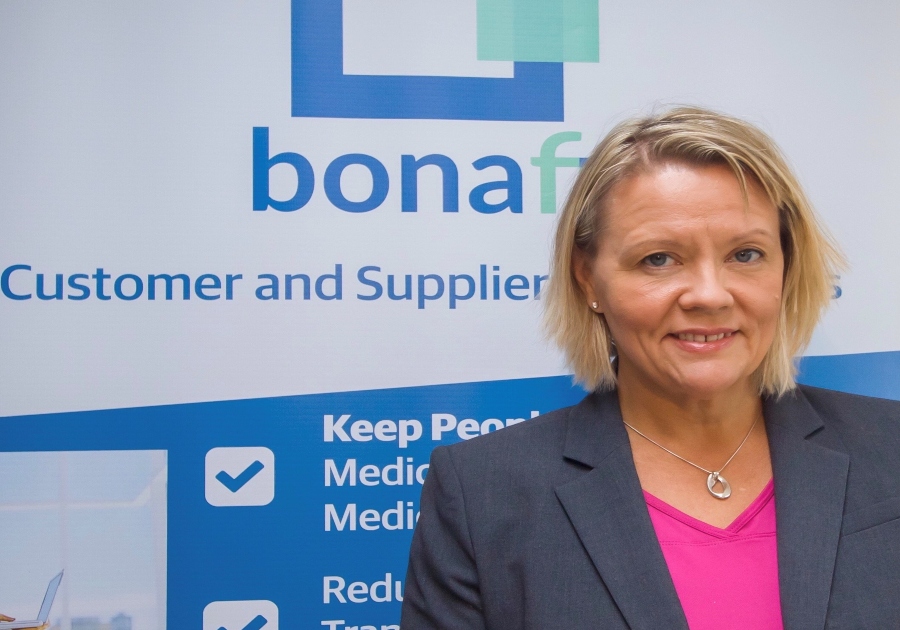Podcast Ep 33: From playing a role in the development of the Covid Tracker app with NearForm to creating a €100,00 fund for SMEs, Expleo’s Phil Codd has his eye on the future.
At a time when Ireland grapples with a record resurgence of Covid-19 cases and the possibility of a locked-down winter Phil Codd, the head of one of the companies that helped to develop the renowned Covid19 Tracker app by NearForm, maintains that Irish businesses will survive and adapt.
The changes brought about by Covid-19 are there for everyone in every country to see. For most economies, the entire workforces of offices workers shifted swiftly to remote working and many white collar workers are resigned to a future of work that will be both remote and hybrid. Many workers in other industries such as hospitality and entertainment, have not been so lucky, and we owe countless thanks to many others still on the front-line.
“There were stand up meetings every day attended by everybody. It was everybody getting behind this tremendous opportunity to do their bit and help society in what was an amazingly testing time”
Ireland succeeded in flattening the curve after a mighty high in April only to find itself in a situation where the latest spike in numbers surpasses the April numbers.
But while Ireland’s initial response to the crisis was exemplary, harsh lessons and disciplines from that initial response will need to be revived and applied.
Necessity is the mother of invention
One of those initial responses and one that is now being used around the world, including cities like New York and New Jersey, is the Covid Tracker app. The app, developed in record time by Waterford-based NearForm, was only made possible through a collaboration that also included Expleo, the Department of Health, the Office of the Government Chief Information Officer (OGCIO), the Behavioural Research Unit within ESRI, the Central Statistics Office, data protection officials, An Garda Síochána, the Irish Army, Science Foundation Ireland and many more, in addition to multiple departments within the HSE.
Through quality assurance and software testing, Expleo was responsible for ensuring that the app was user-friendly, fast and reliable, which involved testing it to be able to handle one million downloads in an hour. The team in Expleo spent nearly 5,000 hours testing the app and tested it to be able to handle 1m downloads in an hour.
At the helm of Expleo in Ireland is Phil Codd, a seasoned tech industry veteran who previously worked at tech giant SAP. “We’re a specialist tech consultancy with about 500 people in Ireland, across Dublin and Belfast. We specialise in helping our clients meet the stated aims of their projects and programmes. And we do this by bringing in knowledge, skills, resources and methodologies to help those organisations improve the quality and the outcome, ultimately, of the programmes they undertake. And, as you know, it is business change that drives it.”
Reflecting on the business changes that were prompted by the Covid-19 virus, Codd reckons there is no industry that hasn’t been changed or transformed, most likely forever. While supermarkets were able to grow their business and online shopping and delivery exploded, many organisations had to pivot to stay in business.
“Retailers got into curb-side pickups, taxis became delivery services, alcohol companies started making hand sanitiser, and many organisations had to pivot really just to stay still or continue in the market. The tourism space has been heavily impacted, the automotive industry, the airline industry with players like Airbus and Boeing literally coming to a stop.”
In terms of the Covid Tracking app, Expleo and others went to work pro bono on building it. “The Government and the HSE contacted us directly to ask us to get involved and could we bring along some of our expertise along with other players like NearForm who were the architects and the builders of the platform.”
The amazing thing about the Covid crisis is ultimately how it ushered in remote working at an undreamed of pace as well as accelerating the digital transformation of entire industries years ahead of schedule. Certainly, in the case of the Covid Tracker app, it saw an agility and collaboration between SME, multinational and public sector organisations at a pace that wouldn’t have been possible in normal times.
“There’s now an interoperability across borders which is quite a phenomenal achievement. Scotland has taken the same platform built by NearForm and we are providing the same level of quality assurance there. It was great to see the number of people that got behind it, particularly in Ireland. It’s great to see how many people are checking into the app on a daily basis. When I looked at it this morning 100,000 people had already checked in. So that involvement at that level and the societal impact was quite exciting.”
But what Codd is particularly buzzed about is the speed of collaboration. “I literally got a call on a Saturday afternoon at home and by Monday we had our team set up. And that ‘can do’ attitude prevailed throughout the development of the app. There was the work on the QA to ensure interoperability with the various government agencies, central government, the HSE and obviously the Data Protection Commission was involved too. A critical part of the success of the way that the app works is there is no data held within the app or held centrally. It is all done through anonymous digital codes that are only known to the app itself.
“There were stand up meetings every day attended by everybody. It was everybody getting behind this tremendous opportunity to do their bit and help society in what was an amazingly testing time. And the fact that we got this app released that could let people know if they had been in contact with somebody else that had Covid-19 symptoms, would give recommendations and save lives.”
To move that fast, rules had to be bent. “There were procurement rules that had to be adjusted to deal with what was an emergency situation. And it just goes to show you that things can be done quickly when they need. Today’s technology enables us to do that and it can be done on a global basis.”
Digital transformation journey accelerated
Another interesting change was how the term “digital transformation” evolved from being a buzz term used among large enterprises to suddenly being an SME call to action.
The beauty of this for SMEs, Codd believes, is they can pick and choose the elements they need and get up to speed much quicker than larger enterprises.
For its part Expleo launched a €100,000 fund to help SMEs impacted by the pandemic. The investment is part of the company’s pledge to help reboot Ireland following the devastating and sudden restrictions that were thrust upon the country back in March, that has resulted in Ibec’s declaration that investment will have fallen by as much as 40pc this year and the impact is likely to be felt right through to 2021.
Expleo’s investment will cover a range of areas including digital transformation, change management and strategy.
“We’ve had a lot of enquiries and we’ve started to work with different organisations, including retailers in Donegal, with charities, with pharmaceutical companies, all kinds of companies.”
The Expleo is across the entire organisation, taking expertise from its ranks of HR professionals, tech professionals and financial professionals including chartered accountants, to engineer solutions for companies that are trying to digitally transform.
“There’s no fixed template to it. There’s no fixed amount for each company, and once we’ve burned through the money we budgeted for we can look at it again. The beauty of it is that we can get our own staff involved in this.”
For Codd, one of the biggest learnings from the whole crisis was the importance of communications. “It was about making sure all of our staff were looked after and that we could make sure that in this new world of working from home they had everything they needed.
“A lot of what we do is project-based and a lot of projects simply stopped. But what could we do in other areas. How could we better enable cash flow for organisations, whatever it took. So, it was all about communications, making sure we looked after staff but also keeping an eye on running the business and keeping the doors open.”
His overall instinct is that people and businesses will learn to adapt. “I think we will all grow in our knowledge as we get through the winter, we will adapt as we have already done. This started in March, by the beginning of April everybody was working from home. So we adapted and I think we will continue to adapt as we go into 2021.”
By John Kennedy (john.kennedy3@boi.com)
Published: , 2020






